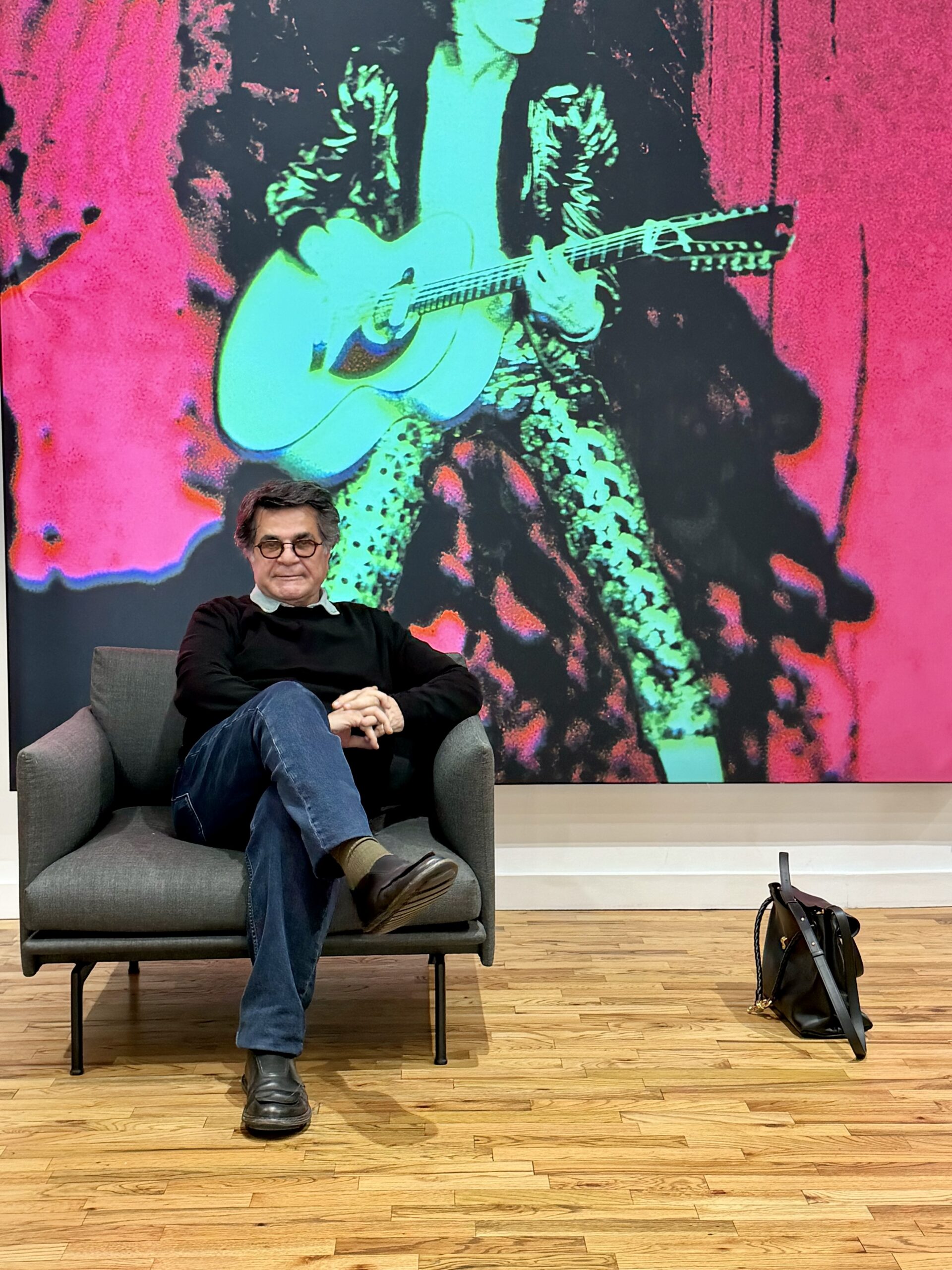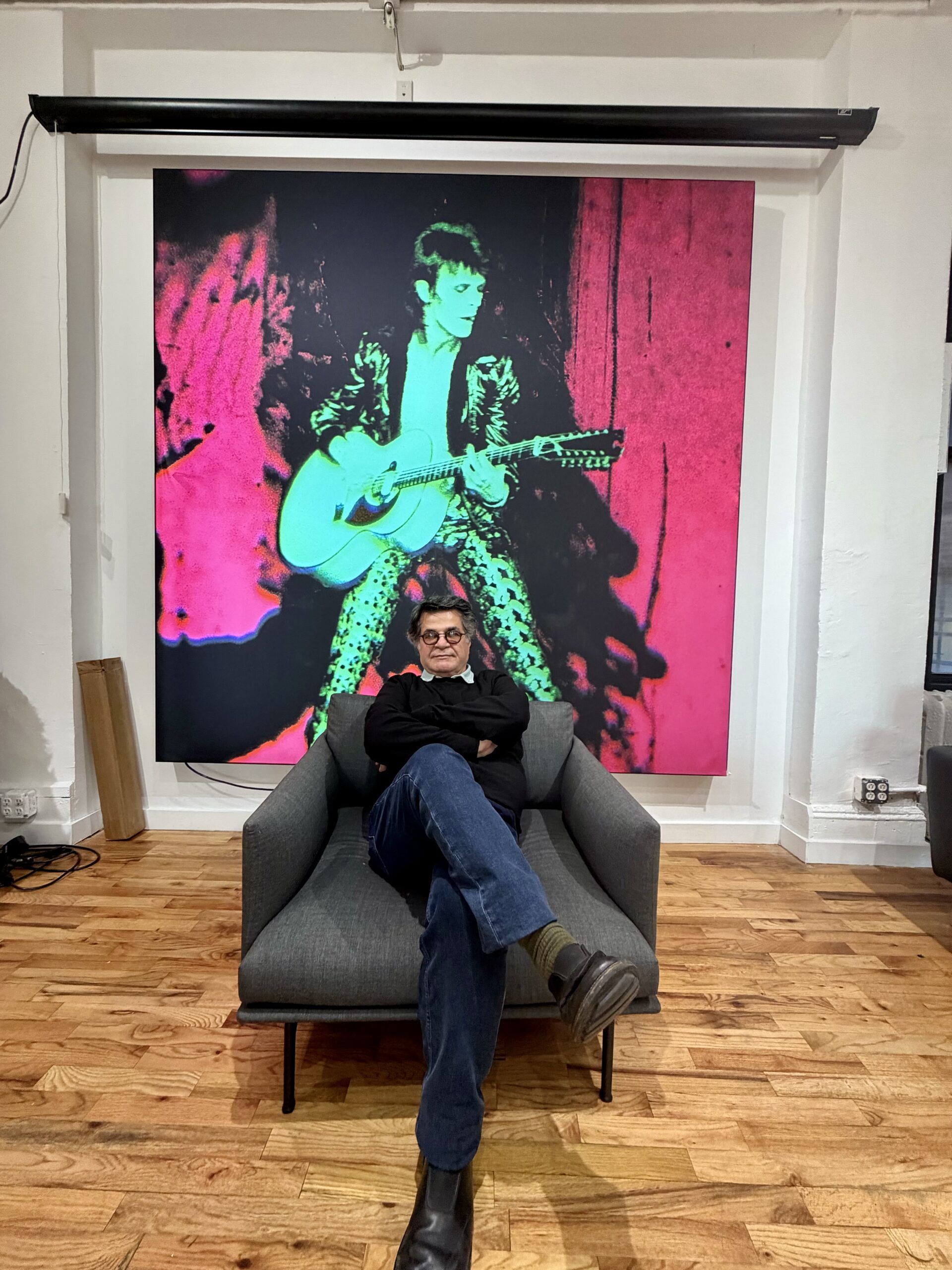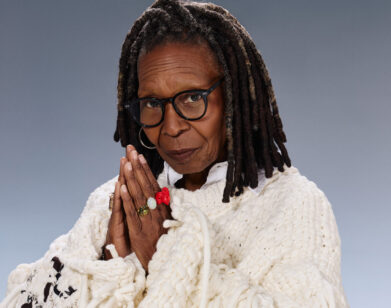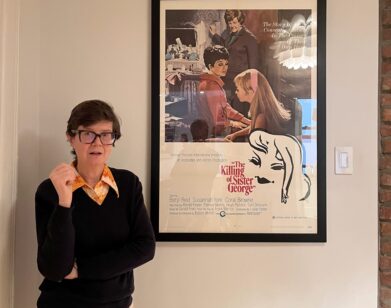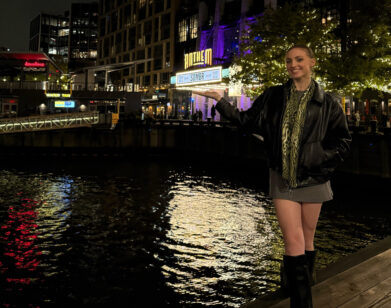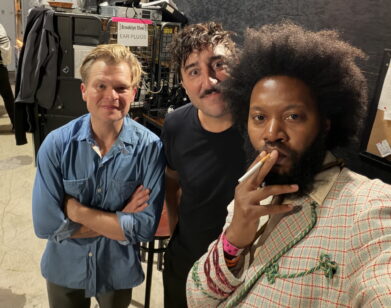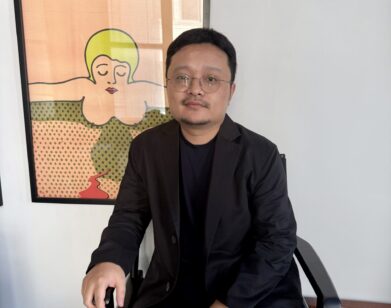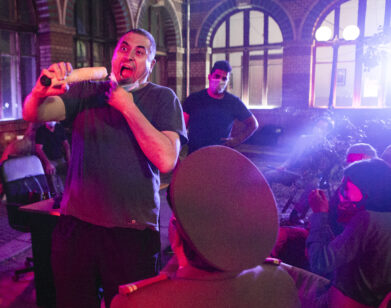NYFF
Director Jafar Panahi on Making Movies in the Age of Authoritarianism
THURSDAY 4:41 PM OCTOBER 9, 2025 DOWNTOWN
Jafar Panahi may be one of the most celebrated directors alive—and the winner of the most recent Palme d’Or for his political thriller It Was Just an Accident. But when he found himself in New York City this week with a bit of free time, he did what any tourist might: he took a visit to the Empire State Building and had a hearty meal at McDonald’s. In town for New York Film Festival, the 65-year-old Iranian director is generating lots of Oscar buzz for his latest release, an emphatic rebuke of the authoritarian regime by which Panahi himself has been persecuted and censored. Earlier this week, he joined Jeremy O. Harris at the offices of the film’s distributor, NEON, to talk about making art under oppressive regimes.
———
JEREMY O. HARRIS: It’s lovely to meet you. I’m Jeremy.
JAFAR PANAHI: Hi, Jeremy. Nice to meet you.
HARRIS: This is such an honor. My fiancée and his family are all Persian, so I know that my father-in-law is going to freak out.
PANAHI: [Laughs] Oh, thanks.
HARRIS: You won the Palme d’Or. You’ve won so many other awards for this film already, so I think I just want people to experience the thing I experienced. But I’d love to use this opportunity to get your help in teaching American filmmakers or anyone reading this how to tell stories in a moment when oppression seems right around the corner.
PANAHI: Of course, we want the film to be seen and screened now, but it is about the future. I have seen in documentaries and in films about World War II how people who had cooperated with the Nazis. Women were shaved and they were out of their clothes and they were shunned on the streets. Meaning they continued the violence of war. I wanted to raise the question from the heart of this regime that is: is the violence going to end when the regime falls, or is there going to be a point in which we put a stop to the cycle of violence? It is true that my film has been made in the present time, but this is a viewpoint, this is a look on the future. I didn’t want to say what should happen, but I wanted to raise questions. And we have to think about it now.
HARRIS: It’s amazing that you are so future-forward, but you made this film under these immense pressures. You have been imprisoned, you’ve been under travel bans, house arrest. A different type of filmmaker, a different type of artist, might retreat and stop looking or looking for the kinds of stories that might upset the regime. Why do you continue to push towards the future?
PANAHI: First of all, I need to say that I never was under house arrest. This is a mistake that keeps happening for years. I could travel within Iran, I just was banned from leaving Iran, so this is not house arrest. The next issue is, my issue is cinema. I have to make films, and I consider this my natural right. Way more than I want to think of it as a political resistance act, it is my basic human right to make the film I want to make. So now that I want to make the film that I want, I have to also pay the price for it. This is not bravery or anything, it’s just me reclaiming my rights. Problems started with the film The Circle because it broke certain red lines and talked about certain topics that were forbidden. It talked about women prisoners, it talked about class differences, it talked about women prostitutes, and these were all taboos back then. That’s how it all got started, but I kept making my own films.
HARRIS: America proudly expresses that it has freedom of speech, which has not been true for people who have looked like me for most of America’s democracy. And now, there are a lot of young people who I think for the first time are feeling the falsity of that idea in our constitution on their college campuses, in the articles they can put out. Do you have any words for them? These young people who were, for the first time ever, meeting a moment where the cost of saying what you want is higher than they imagined?
PANAHI: No one can give you words of advice. I only know my country; I don’t know this country. I can only see the signs in your country. When a journalist comes to speak with me and in certain places brings their voice down because they’re afraid of eavesdropping or they’re afraid of tapping, we have seen those signs in our own country and we know where it’s going to lead to. I said this in my acceptance speech at TIFF. I said that I’m worried about the signs that I’m seeing. And I’m not seeing this only in the United States. I’m seeing it in many other places; it is only that it is unbelievable, unexpected in the United States.
I don’t know what the solution is. I think in our own country, we’re fighting against it. Our people, especially women, have found the way. Three years ago when the Women, Life, Freedom movement happened, it was a complete breakthrough and the history of Iran divided into before and after that movement. Women came out, they got beaten up, but they still put their scarves on fire. They burned their scarves. They shot many directly in the eye and they blinded them intentionally. And yet the next day, we saw the same women were out fighting on the street. And now you see a lot of women on the streets not wearing the hijab. It’s not that there has been a change by the government at all. You asked me for solutions or words of advice, and I really don’t know the situation here. You know the words of advice or the solutions here. We can only warn you about the signs we see and their consequences.
HARRIS: Thank you. Your work also has a brightness and a lightness to it, so I wonder where you find joy and fun. Since you were a child, you’ve had a camera in your hand and you’ve photographed so much, but I’m curious what you take in, what you watch. Do you watch dumb international television or mostly high cinema?
PANAHI: No, these all also go back to the culture I’m coming from. There are things that are really ordinary and commonplace to us, they’re not even funny. And there are things that have a source of fun or humor in our culture. For instance, before the 1979 revolution, we had a lot of celebratory occasions. We had the Nowruz festivities at the beginning of spring. People went to visit one another at home. They played music and they danced. On the 13th day, the last day, was the celebration of nature and people would all go to nature and celebrate it. But when this regime came, it decided to abandon all this and destroy it and replace it with religious morning traditions. But people kept Nowruz going. They kept the spring festivities going, and now it is celebrated every year even better than the previous year. So the joy and the humor is natural, and you as the filmmaker might add spice to it.
HARRIS: That’s amazing. And you are here for The New York Film Festival right now. There was some trouble getting in, but now you’re here. Are you seeing anything else or are you just doing interview after interview after interview?
PANAHI: Only getting on the flights back to back.
HARRIS: Wow. No good restaurants?
PANAHI: Not yet. Well, we actually go to very good restaurants but we talked the entire time. We didn’t go to any places, any restaurants in New York. I thought of one yesterday, but we were working there. We were constantly talking there, so then we got in the car and went. Just last night at midnight I couldn’t fall asleep and I went and walked around the Empire State Building.
HARRIS: That’s amazing.
PANAHI: I walked around for an hour-and-a-half and then I realized, “Hmm, I haven’t had McDonald’s for a very long time,” so I went to have McDonald’s. This was your good restaurant.
HARRIS: Oh my god.
PANAHI: [Laughs] So I did go to an American restaurant.
HARRIS: I’m going to give you a list of some Persian restaurants I really like. I’ll email them.
PANAHI: We’ll go!
HARRIS: Thank you so much for this. This film was so beautiful. I saw it at Cannes, so it was very cool to be able to watch it again.
PANAHI: Thank you guys.

